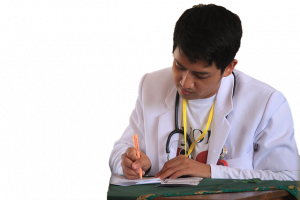Vad är Wegovy-injektioner?
Innan du överväger att köpa Wegovy online i Sverige, läs vidare. Vuxna som lider av fetma kan dra nytta av Wegovy-injektioner, som kan hjälpa dig att gå ner 15 % av din ursprungliga vikt. De hjälper till att reglera aptiten och förlänger mättnadskänslan, vilket gör det lättare att följa en lågkaloridiet.
Du behöver bara administrera injektionerna en gång i veckan, eftersom varje injektion är placerad i en praktisk engångspenna, vilket gör den lätt att använda.
Att köpa Wegovy online i Sverige kan vara lösningen du behöver för att nå dina mål för viktminskning om du har ett BMI på 30 eller mer och har upptäckt att tidigare viktminskningsbehandlingar inte har fungerat för dig.
*Wegovy kommer snart att finnas tillgängligt på vårt partnerapotek, men under tiden är Saxenda ett lika effektivt substitut.
Hur använder jag Wegovy för att gå ner i vikt?
Varje engångspenna används en gång innan den kastas på rätt sätt när du använder Wegovy en gång i veckan. Se till att tvätta händerna innan du injicerar detta viktminskningsläkemedel, kontrollera att pennan inte är skadad och att utgångsdatumet inte har gått ut, rengör sedan injektionsstället med en alkoholvippa eller tvål och vatten.
För att påbörja injektionen tar du bort pennans lock för att exponera nålhöljet och trycker den exponerade änden av pennan stadigt mot din hud. Varje injektion tar mellan 5 och 10 sekunder, och du kommer att höra ett klick i början och ett annat i slutet av injektionen. För att övervaka dina framsteg kan du titta på den gula stapeln på sidan av pennan.
När den gula stapeln slutar röra sig är injektionen avslutad och du kan försiktigt ta bort pennan från huden. Håll pennan i handen tills den gula stapeln har slutat röra sig. Det är helt normalt att se lite blod där du har injicerat din penna, tryck bara försiktigt på området med bomullsull eller en bit gasbinda för att stoppa blödningen och rengöra det. När du har använt pennan en gång ska du slänga den försiktigt i en behållare för vassa föremål.
Var ska jag administrera detta läkemedel?
Efter att du har köpt Wegovy utan recept har du flera möjliga injektionsställen, och din läkare kan föreslå ett. Dessa platser inkluderar

- dina övre ben
- din nedre del av buken
- dina axlar
När du använder denna behandling kan du injicera på samma ställe, men du måste vara försiktig så att du varierar platsen där du placerar nålen varje gång. Undvik att röra vid trasig, öm, röd, blåmärkt eller på annat sätt skadad hud.
Hur mycket ska jag ta?
Wegovy inleds normalt med den lägsta dosen (cirka 0,25 mg per vecka ) och ökas gradvis med tiden. Titrering är en teknik som minskar biverkningarna samtidigt som den hjälper din kropp att anpassa sig till ett nytt läkemedel.
Din dosering kommer vanligtvis att ses över av ditt medicinska team var fjärde vecka och ökas en gång i månaden tills du tar den maximala mängden på 2,4 mg per vecka. Nyckeln är att upprätthålla en öppen kommunikation med din förskrivare och resten av ditt medicinska team och att strikt följa de doseringsrekommendationer som de ger.
Hur hjälper semaglutid till med viktminskning?
Huvudkomponenten i Wegovy är semaglutid, som tillhör en klass av läkemedel som kallas GLP-1-receptoragonister. Det betyder att det fungerar genom att hjälpa dig att kontrollera din aptit och minska hunger och sug. Det hjälper till att öka syntesen av hormonet insulin i din bukspottkörtel och minska produktionen av hormonet glukagon.
Denna kombination gör att din kropp absorberar glukos långsammare, vilket gör att du känner dig mättare efter att ha ätit och håller dig mätt längre. Wegovy-injektioner hjälper dig att följa en lågkaloridiet genom att minska din aptit, vilket naturligtvis gör det lättare att gå ner i vikt.
Hur lång tid tar det innan dessa viktminskningsinjektioner börjar verka?
Även om Wegovy-injektionerna börjar fungera omedelbart i din kropp kommer kilona inte att börja smälta bort direkt. Enligt kliniska studier förlorar patienter som behandlas med Wegovy vanligtvis 15 % av sin ursprungliga vikt under behandlingens gång, men hur snabbt detta sker beror på hur många kalorier du förbrukar varje dag.
Att köpa Wegovy utan recept hjälper till att reglera aptiten och minska suget efter ohälsosamma livsmedel, vilket gör det lättare för dig att följa den kalorisnåla diet du behöver för att gå ner i vikt. Du kan använda detta nummer som en allmän riktlinje när du tänker på dina mål för viktnedgång, eftersom en hälsosam takt för viktnedgång ofta anses vara 1-2 pund per vecka.
Varför behöver ni mitt BMI?
Endast personer med ett BMI (body mass index) på 30 eller högre, eller personer med viktrelaterade medicinska tillstånd, eller personer med ett BMI på 27 eller högre, bör köpa Wegovy online i Sverige. Våra förskrivare kommer inte att kunna erbjuda dig detta läkemedel som behandling om ditt BMI är lägre än så.
Om du börjar köpa Wegovy utan recept när ditt BMI är lägre riskerar du att gå ner för mycket i vikt och utveckla ett underviktstillstånd, vilket kan förvärra vissa medicinska problem. Använd en miniräknare och ange din nuvarande längd och vikt för att hitta ditt BMI, ett BMI på 18,5 till 24,9 anses normalt vara hälsosamt.
Är Wegovy likvärdigt med Ozempic?
Wegovy och Ozempic är två läkemedel med olika användningsområden för samma aktiva substans. De tillverkas båda av Novo Nordisk, som för närvarande kontrollerar patentet för båda läkemedlen. Om du har typ 2-diabetes kan du ta Ozempic ensam eller i kombination med andra läkemedel som insulin eller metformin och det hjälper till att reglera ditt blodsocker.
Dessa läkemedel fungerar på ett liknande sätt eftersom de båda innehåller semaglutid, men det betyder inte att du kan ta dem på ett utbytbart sätt. Wegovy ges ofta i högre doser än Ozempic. Om du för närvarande tar Ozempic för din typ 2-diabetes får du därför inte ta Wegovy, eftersom detta kan leda till en överdosering av den aktiva substansen.
Vad är skillnaden mellan Wegovy och Saxenda?
Ett annat märke av injicerbart viktminskningsmedel som är anmärkningsvärt jämförbart med Wegovy är Saxenda. Även om de använder olika aktiva ingredienser och har olika doser fungerar de på ett liknande sätt. Liraglutid, den aktiva ingrediensen i Saxenda, tillhör samma klass av läkemedel som semaglutid – GLP-1-receptoragonisterna. Wegovy behöver bara injiceras en gång i veckan, medan Saxenda behöver injiceras dagligen.
Wegovy kräver inte att du gör något eftersom varje penna bara används en gång, till skillnad från Saxenda-pennorna som kräver att du manuellt justerar din dos och sätter in en ny nål för varje dos. Den sista viktiga skillnaden är att kliniska studier har visat att Wegovy är mycket effektivare än Saxenda. Inom 12 veckor efter att ha tagit den maximala dosen Saxenda kan du förlora 5 % av din ursprungliga vikt, men kliniska studier av Wegovy har visat att människor förlorar i genomsnitt 15 % av sin ursprungliga vikt.
Kan jag ta min vanliga medicinering samtidigt som dessa viktminskningsinjektioner?
Vid ditt möte för Wegovy ska du berätta för din förskrivare om du tar några andra läkemedel, inklusive naturläkemedel och läkemedel som köpts utan recept. Att kombinera vissa läkemedel kan ge oönskade biverkningar eller minska effekten av ditt recept. Om du för närvarande tar något särskilt, se till att berätta det för din förskrivare:

- Blodförtunnande medel, ibland kallade antikoagulantia, inkluderar warfarin.
- Eftersom dina blodsockernivåer kommer att behöva övervakas regelbundet kan din läkare behöva justera din insulindosering.
- Någon annan medicinering för viktminskning
Kan jag använda den här produkten om jag ammar eller är gravid?
Wegovy ska inte användas under graviditet eller amning eftersom det ännu inte är känt hur semaglutiden i detta läkemedel påverkar fostret under utveckling eller om den passerar över i bröstmjölk. Många gravida kvinnor upplever en viktökning, men om du är orolig för din viktökning, tala med din läkare eller annan vårdpersonal och be om deras råd. De kommer att kunna hjälpa dig att fastställa orsaken till din viktökning (till exempel om den beror på sug eller hormonella förändringar) och hjälpa dig att fatta livsstilsbeslut som kan hjälpa dig att uppnå och bibehålla en hälsosam vikt.
Kan jag dricka alkoholhaltiga drycker under denna behandling?
Du kan dricka alkohol när du tar Wegovy, det ska inte påverka hur läkemedlet fungerar. För att hjälpa dig att hålla dig hydrerad rekommenderar vi alltid att du dricker måttligt och försöker alternera alkoholhaltiga drycker med glas vatten eller en annan alkoholfri dryck.
Du bör också vara medveten om antalet kalorier som ingår i alkoholhaltiga drycker. Om du dricker för mycket alkohol kan det hindra dina ansträngningar att gå ner i vikt, eftersom det ökar ditt kaloriintag, som vanligtvis är mycket högre än vad du skulle förvänta dig av alkoholhaltiga drycker.
Är det nödvändigt med ersättningsnålar för Wegovy-pennor?
Wegovy-pennor behöver inte ersättas med nålar efter varje användning, till skillnad från Saxenda. Detta beror på att Wegovy-pennor är engångsartiklar, vilket innebär att du inte behöver mäta en dos manuellt eller oroa dig för att fästa en ny nål på din penna. En av anledningarna till att människor väljer denna behandling framför Saxenda är att du inte behöver ta hand om doseringen eller nålarna själv, vilket förenklar hela proceduren.
Kommer den här produkten med en behållare för vassa föremål?
Ja, vi kan förse dig med behållare för vassa föremål så att du kan göra dig av med dina Wegovy-pennor på rätt sätt. Efter ditt möte med en av våra specificerare kommer du att få möjlighet att lägga till en behållare för vassa föremål till ditt köp. Vi kanske kan förse dig med en behållare för vassa föremål utan kostnad, beroende på hur mycket du köper, men det kan tillkomma en avgift för mindre beställningar. När du har en behållare för vassa föremål ska du kontakta din kommun för att ordna insamling och säkert bortskaffande av innehållet när behållaren är full.
När ska jag inte ta viktminskningsinjektioner?
Barn och ungdomar under 18 år ska inte köpa Wegovy-pennor utan recept i Sverige. Om du reagerar på semaglutid eller på något av de andra ämnen som nämns får du inte använda detta läkemedel. Om du eller någon i din familj någonsin har haft multipelt endokrint neoplasisyndrom typ II eller medullärt sköldkörtelkarcinom (MTC), som båda påverkar det endokrina systemet, ska du inte ta denna behandling (MEN 2). Vid ditt besök ska du berätta för din förskrivare om du har :
- njurproblem
- problem med bukspottkörteln
- självmordstankar, depression eller andra psykiska problem
- typ 2-diabetes
Finns det några negativa effekter av semaglutid?
Även om inte alla upplever dem kan semaglutid ha negativa effekter som alla andra läkemedel. Semaglutid ska inte användas om du utvecklar någon av följande större negativa effekter och du bör söka omedelbar medicinsk hjälp:
- Diabeteskomplikationer relaterade till retinopati kan visa sig som symtom såsom synförändringar och andra ögonproblem.
- Patienter med typ 2-diabetes löper ökad risk för hypoglykemi, vilket kan leda till symtom som yrsel eller svindel, samt svettningar, skakningar, synfel, oklarheter, oklarheter i talet osv.
- Symtom på inflammation i bukspottkörteln är olidligt obehag i rygg och mage som inte försvinner.
- Symtom som tyder på en allvarlig allergisk reaktion, t.ex. väsande andning, nässelfeber eller svårigheter att andas eller svälja samt svullnad i ögon, ansikte, läppar, tunga eller hals,
- problem med gallblåsan med obehag i övre delen av magen, gulsot (gulfärgning av hud eller ögon), feber och lerfärgad avföring.
- njursvikt eller problem med njurarna, särskilt hos personer som redan har njurproblem
- Ökad hjärtfrekvens – om ditt hjärta rusar eller slår i bröstet i flera minuter ska du omedelbart söka läkarvård.
- Självmordstankar eller depressiva tankar. Om din mentala hälsa eller ditt humör förändras när du tar detta läkemedel, var medveten om detta och tala omedelbart med din läkare om du har några bekymmer.
Du kan också uppleva följande vanliga biverkningar av Wegovy:

- Vanligtvis går känslan av obehag över med tiden.
- Hypoglykemi, med tecken som kallsvettningar, kall, blek hud, huvudvärk, snabb puls, att känna sig svag eller hungrig, synförändringar, svaghet eller sömnighet, rastlöshet, ångest, förvirring, koncentrationssvårigheter eller skakningar.
- Matsmältningsbesvär
- Magsmärta, att känna sig sjuk eller illamående är några av symptomen på gastrit, en inflammation i magsäcken.
- matsmältningsbesvär eller halsbränna
- buksmärta
- Uppblåsthet
- Förstoppning (oförmåga att lätta på sig själv)
- Farting, burpning eller både och
- Gallfläckar
- Yrsel
- Trötthet
- Viktförlust
- minskad aptit
- ökade pankreasenzymer, inklusive amylas och lipas
Om du upplever dessa eller andra negativa effekter ska du tala med din läkare eller apotekare så snart som möjligt. Se patientinformationsbroschyren som du fick tillsammans med din behandling för en fullständig lista över möjliga biverkningar av detta läkemedel. Se MHRA Yellow Card Scheme för information om hur man rapporterar biverkningar av läkemedel.
Behövs det ett recept för Wegovy?
Det krävs ett recept för Wegovy. För att boka tid, klicka på ikonen högst upp på denna sida för att gå till deras webbplats. Där hittar du ett kort frågeformulär som skapats av vår hälsopersonal för att bättre förstå dina medicinska behov. Experterna kommer att bedöma dina svar på deras frågor och skapa ett recept för den behandling som de anser vara mest fördelaktig för dig, på samma sätt som vid ett personligt möte med din husläkare. Därefter kan du betala för ditt recept, och de skickar det till dig omedelbart och diskret.
Vad är priset på Wegovy i Sverige?
- För 1 Wegovy-penna är priset: 1500 kr
- För 2 pennor från Wegovy är priset: 3000 kr
- För 3 pennor från Wegovy är priset: 4000 kr
- För 4 pennor från Wegovy är priset: 5000 kr
- För 5 pennor från Wegovy är priset: 5800 kr ( Du sparar 2000 kr )
Hur du förvarar den här produkten
Wegovy pennor ska förvaras i kylskåp vid 2-8 grader C. Undvik att frysa in dem. En penna med kapsyl kan förvaras i rumstemperatur (under 30 grader C) i upp till 28 dagar om det behövs. Förvara originalförpackningen på ett mörkt ställe. När du har använt pennan ska du slänga den på rätt sätt i en behållare för vassa föremål.

